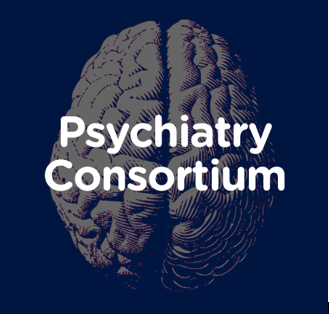Medicines Discovery Catapult, MQ: Transforming mental health and Alzheimer’s Research UK, announce strategic collaboration

Today (18th June 2019) Medicines Discovery Catapult, MQ: Transforming mental health and Alzheimer’s Research UK announce an innovative drug discovery consortium with industry, supported by the Wellcome Trust.
The Consortium will focus on the identification and validation of novel drug targets for psychiatric diseases, including the psychiatric symptoms associated with dementia.
Anchored to patients by the leading medical charities and managed by Medicines Discovery Catapult, the consortium will foster new and truly needed innovative research approaches and revitalise psychiatric drug discovery. Collectively, the strategic partners aim to provide approximately £3 million in research funding over a period of 3 years with the aim of delivering up to 10 high-value drug discovery projects.
The Wellcome Trust will support the consortium to promote reach and engagement within the academic community. Major industry players engaged as inaugural members of the consortium include: Biogen, Boehringer Ingelheim, Johnson & Johnson Innovation, Lundbeck, MSD (trade name of Merck & Co., Inc., Kenilworth, NJ, USA) and Takeda.
The consortium will enable collaboration between academia, industry, charities and government funded organisations to develop and deliver a portfolio of innovative collaborative projects to accelerate psychiatric disease research and ultimately provide better treatment options to patients.
It will do this in a syndicated, cross-sector research platform underpinned by innovative funding approaches. It will also provide a mechanism to “pull-through” academic ideas and validate them to industry standards, enabling their pre-clinical development and, ultimately translation to the clinic.
The scale and impact of mental illness and dementia across society is huge:
- One in ten children, and one in four adults, approximately 15 million people in the UK, experience mental illness each year, affecting their wellbeing, relationships, and potential ability to work. The economic and social cost has been estimated as £105bn a year in England alone.
- In addition, dementia affects over 850,000 people in the UK and is now the country’s leading cause of death, costing £26bn a year. Yet, only 4.5% of the total medical research budget was allocated to dementia in 2016/17.
Despite this prevalence and need to discover new medicines for a variety of psychiatric conditions, there has been a dramatic fall in psychiatric drug discovery over the last 10 years, due in part to the high failure rates of clinical trials in this field.
With only 5.8% of the total UK research budget dedicated to mental health research, funding falls dramatically short of what is required, lagging behind many other conditions.
Without sustained research investment, patients will not receive the genuine breakthroughs in treatment needed to better treat their conditions.
However, at a time of rapid scientific advancements in the understanding of psychiatric disorders, coupled with greater societal and governmental focus on mental health and dementia, the opportunity to advance psychiatric research has never been greater.
Academic institutions from anywhere in the world will be eligible to submit proposals.
Mark Samuels, Chief Business & Strategy Officer of the Medicines Discovery Catapult, says:
“Providing a unique mechanism to enable increased drug discovery, the Psychiatry Consortium will be exclusively designed to deliver significant impact across the psychiatric research landscape; bringing together charities, industry and the academic community to fund strong academic-led projects, driving new discovery programmes forward.”
Dr Eva Wolbert, Senior Portfolio Manager of MQ: Transforming mental health, says:
“At the moment, too many people living with a mental illness are going without the effective help they need. There has been a dearth of innovation in drug treatments with most drugs developed in the 1970’s and 80’s and many being associated with varying degrees of unwanted side effects. This Psychiatry Consortium is an important step in stimulating much-needed advances in the area. Throughout the process, MQ will ensure that people affected by mental illness are at the heart of the research funded.”
Dr Carol Routledge, Director of Research of Alzheimer’s Research UK, says:
“People living with dementia don’t just experience memory problems, many also face challenging behavioural symptoms such as anxiety and aggression. While we continue to fund research into disease-modifying treatments, it is vital that we also look for drugs that help relieve psychiatric symptoms associated with dementia, and the Psychiatry Consortium will help accelerate the progress of these desperately needed medicines.”
Dr Ian Campbell, Interim Executive Chair of Innovate UK says:
“This strategic collaboration signals tangible progress in changing the shape of UK innovation in medicines discovery. The Catapult believes that the future of medicines discovery has the patient at its heart. This Consortium shows that industry, academia and charities believe that too. The UK Government has prioritised addressing mental health and Innovate UK is playing its role in delivery. We share the Consortium’s vision and proudly support the Catapult in its ongoing mission to support the sector by delivering multiple technology and process improvements.”





















